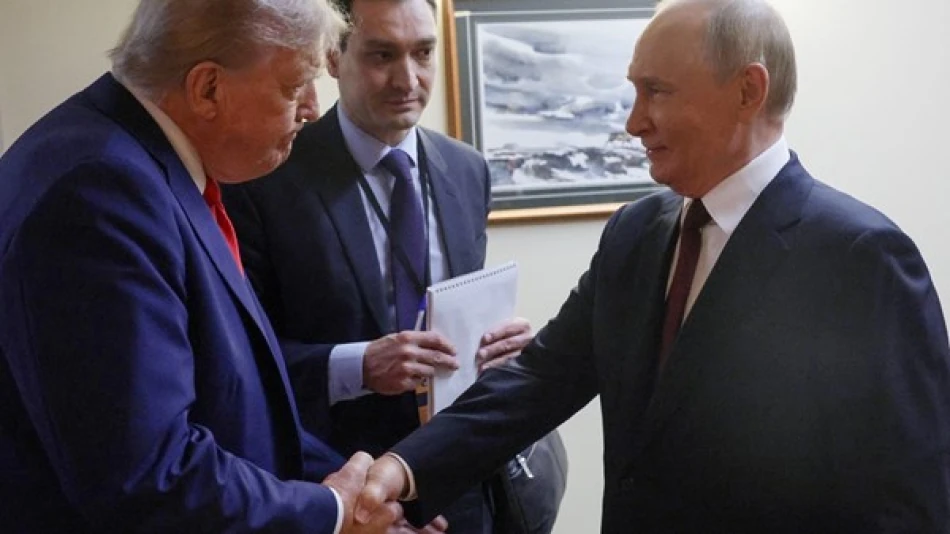
Trump Briefs Zelenskyy and European Leaders on Outcomes of Putin Summit
Europe Rallies Behind Ukraine as Trump Briefs Allies on Putin Summit
European leaders have issued a forceful joint statement reaffirming their commitment to Ukraine following President Donald Trump's briefings on his Friday summit with Vladimir Putin in Alaska. The coordinated response signals Europe's determination to maintain influence over any potential peace negotiations while ensuring Ukraine's territorial integrity remains non-negotiable.
Trump's Diplomatic Outreach Spans Atlantic
In an unusually comprehensive diplomatic effort, Trump personally contacted key European leaders to share "essential points" from his Putin meeting. Ukrainian President Volodymyr Zelensky received direct briefings, as did British Prime Minister Keir Starmer, French President Emmanuel Macron, German Chancellor Friedrich Merz, and Italian Prime Minister Giorgia Meloni.
This immediate outreach represents a marked shift from Trump's previous presidency, when European allies often learned of major diplomatic developments through media reports rather than direct communication channels.
European Unity Emerges from Uncertainty
Joint Statement Draws Red Lines
The Saturday joint statement, signed by major EU figures including European Commission President Ursula von der Leyen, Polish Prime Minister Donald Tusk, Finnish President Alexander Stubb, and European Council President António Costa, establishes clear European positions ahead of any formal negotiations.
The statement emphasizes that Ukraine must receive "strict" security guarantees to defend its territorial integrity, while declaring that "it is up to Ukraine to make decisions about its territory."
Proposed Three-Way Summit
Perhaps most significantly, European leaders proposed a trilateral summit involving Trump, Zelensky, and European representatives. This proposal effectively positions Europe as a necessary third party in any Ukraine peace process, rather than allowing bilateral US-Russia negotiations to proceed without European input.
Strategic Implications for Ukraine's Future
The European response reveals deep concerns about potential US-Russia agreements that might compromise Ukrainian sovereignty. By immediately coordinating their position and proposing direct involvement in future talks, European leaders are attempting to prevent a repeat of historical great power negotiations that determined smaller nations' fates without their meaningful participation.
The timing and unanimity of the European statement suggests pre-existing contingency planning for this scenario. The inclusion of both EU institutional leaders and key national figures creates multiple diplomatic channels and reduces the likelihood of European divisions that could be exploited in negotiations.
Economic and Security Calculations
Europe's firm stance reflects not just moral solidarity with Ukraine, but hard strategic calculations. European nations have invested heavily in Ukraine's defense and reconstruction, while Russian aggression poses direct threats to European security architecture. Any settlement that legitimizes territorial conquest through force would undermine European security guarantees and international law principles that underpin EU stability.
The statement's emphasis on keeping "Ukraine strong until fighting ends and just and lasting peace is achieved" signals continued military and economic support regardless of US policy shifts, though European capacity to sustain such support without American partnership remains limited.
This coordinated European response establishes the foundation for what could become the most significant transatlantic diplomatic challenge of Trump's second presidency, with Ukraine's future hanging in the balance of competing visions for European security.
Most Viewed News

 Layla Al Mansoori
Layla Al Mansoori






